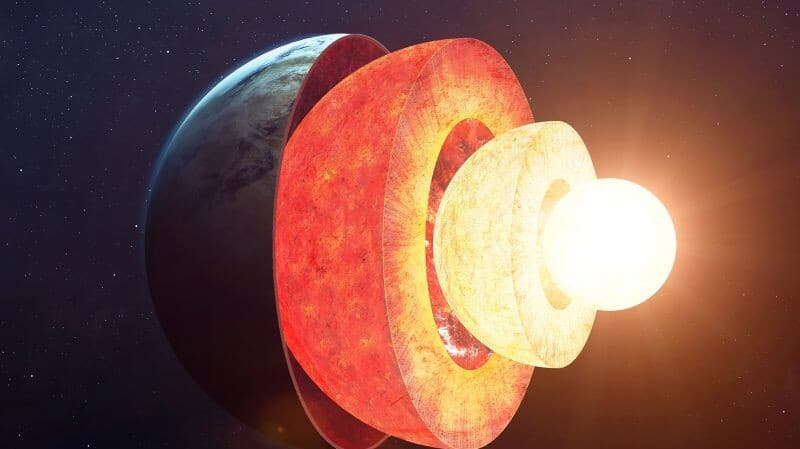
Earth's core is spinning off-kilter: What it means for us
What's the story
The Earth's inner core, a solid metal ball rotating independently of our planet, has been a subject of fascination since its discovery in 1936. Recent evidence suggests a change in its rotation speed and direction. However, its interpretation has sparked debate within the scientific community. "Differential rotation of the inner core was proposed as a phenomenon in the 1970s and '80s, but it wasn't until '90s that seismological evidence was published," said Dr. Lauren Waszek from Australia's James Cook University.
Confirmation
New research supports the hypothesis of core's deceleration
The challenge of observing the inner core and limited data availability have led to disagreements among researchers. A 2023 model suggested that inner core, previously spinning faster than Earth, was now rotating slower and even moving backward relative to surrounding fluid layers. This hypothesis has gained further support from a study published in Nature this June. "We've been arguing about this for 20 years, and I think this nails it," said study co-author Dr. John Vidale from USC's Dornsife College.
Rotation cycle
Implications of changes in rotational speed
The study not only confirms the core's slowdown but also supports the 2023 proposal, that this deceleration is part of a decades-long pattern of slowing down and speeding up. It further proves that changes in rotational speed follow a 70-year cycle. However, the implications of this slowdown on our planet remain uncertain. Some experts suggest that Earth's magnetic field, which interacts with the spinning solid ball of hot metal, could be affected by these changes.
Evidence
Seismic waves confirm core's 70-year rotation cycle
Vidale and his team observed seismic waves made by earthquakes in the same locations at different times. They discovered 121 examples of such earthquakes occurring between 1991 and 2023 in the South Sandwich Islands. The researchers also analyzed core-penetrating shock waves from Soviet nuclear tests conducted between 1971 and 1974. Their findings confirmed the proposed 70-year rotation cycle, suggesting that the core is about to start speeding up again.
Ongoing debate
Scientific community divided over core's movement
Despite the recent findings, not all scientists are convinced that the matter is settled. The debate is ongoing on whether the inner core is moving, and what its pattern has been for the last few decades. Changes in core spin, though measurable, are almost imperceptible to people on Earth's surface. This ongoing scientific discourse underscores the complexity of understanding Earth's inner workings, and their potential impact on our planet.